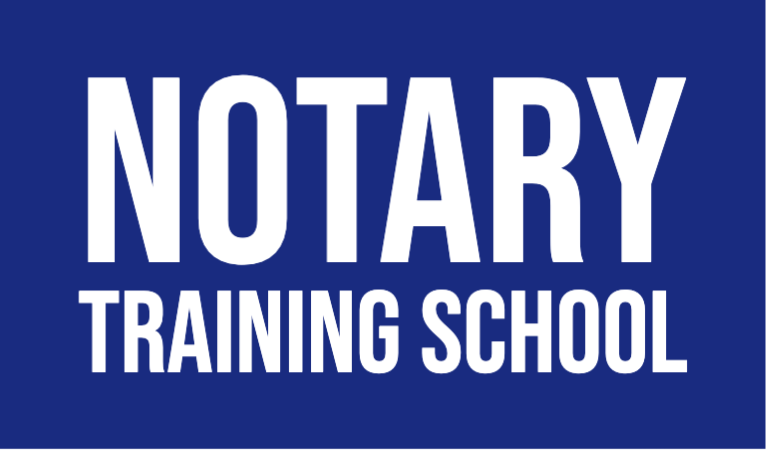10 Essential Tips for Starting a Successful Notary Business

Starting a notary business can be a rewarding venture, providing vital services in legal, financial, and real estate sectors. As a notary, you play a crucial role in verifying the authenticity of documents and preventing fraud. This article aims to equip you with ten essential tips for launching a successful notary business, ensuring you are well-prepared to meet the demands of this important profession.
Table of Contents
Tip 1: Understanding the Notary Role

Definition and Responsibilities
A notary public is a state-appointed official who serves as an impartial witness to the signing of important documents, helping to deter fraud and ensure the proper execution of these documents. Notaries authenticate signatures, administer oaths and affirmations, and may also perform other official acts depending on state laws.
Importance of Notary Services
The role of a notary is critical in various legal and business processes, such as real estate transactions, affidavits, and power of attorney documents. By verifying the identities of signers and witnessing the signing process, notaries help to prevent fraud and ensure the integrity of legal documents. Understanding these responsibilities is the first step in starting a successful notary business.
Tip 2: Getting the Necessary Qualifications and Certifications

Basic Qualifications
To become a notary, you must meet specific qualifications, which typically include being at least 18 years old, a legal resident of your state, and free of felony convictions. These basic requirements ensure that you are eligible to perform notarial acts and uphold the integrity of the notary profession.
Certification and Training Programs
Each state has its own set of requirements and procedures for becoming a notary, including mandatory training, background checks, and passing an exam. Enrolling in a reputable certification program, such as the Notary Signing Agent Academy, can provide comprehensive training and ensure you meet all state-specific requirements. These programs cover essential topics such as notarial laws, ethics, and best practices.
State-Specific Requirements
Understanding the regulations and completing the necessary steps to obtain your notary commission is crucial for your business. This includes filing the appropriate paperwork, purchasing a surety bond if required, and obtaining your notary seal. Staying informed about your state’s specific requirements ensures that you operate within the legal framework and maintain your notary commission.
Tip 3: Setting Up Your Business

Choosing a Business Structure
Choosing the right business structure is essential when starting your notary business. Common options include sole proprietorship, partnership, or limited liability company (LLC). Each structure has its own advantages and disadvantages, so it’s important to consider factors such as liability, taxes, and administrative requirements when making your decision.
Registering Your Business
Register your business with your state and obtain the necessary licenses to operate legally. This process typically involves filing paperwork with your state’s business registration office and paying a registration fee. Additionally, consider obtaining an Employer Identification Number (EIN) from the IRS for tax purposes.
Financial Management
Setting up a business bank account to keep your finances organized is a critical step. Proper financial management, including setting aside funds for taxes and business expenses, is key to sustaining your business in the long run. Utilize accounting software or hire an accountant to help you manage your finances efficiently and ensure compliance with tax regulations.
Tip 4: Building Your Notary Business Plan

Importance of a Business Plan
A well-crafted business plan serves as a roadmap for your notary business, outlining your goals, strategies, and financial projections. A business plan helps you stay focused, make informed decisions, and track your progress over time. It also serves as a valuable tool when seeking funding or partnerships.
Key Components
Key components of your business plan should include an executive summary, market analysis, services offered, marketing plan, and financial projections. The executive summary provides an overview of your business, while the market analysis identifies your target market and competition. The services section outlines the notarial services you will offer, and the marketing plan details how you will attract and retain clients. Financial projections provide estimates of your revenue, expenses, and profitability.
Setting Realistic Goals
Setting realistic goals and milestones will help you track your progress and make necessary adjustments along the way. Establish both short-term and long-term goals that align with your business objectives. Regularly review and update your business plan to reflect changes in the market or your business environment.
Tip 5: Marketing Your Notary Services

Effective Marketing Strategies
Effective marketing is essential for attracting clients to your notary business. Develop a marketing strategy that includes both online and offline methods. Utilize online platforms such as social media, Google My Business, and online directories to increase your visibility. These platforms allow you to reach a wide audience and engage with potential clients.
Building a Professional Website
Building a professional website optimized for search engines (SEO) can significantly enhance your online presence. Your website should include information about your services, contact details, and client testimonials. Optimize your website content with relevant keywords to improve your search engine rankings and attract organic traffic.
Traditional Marketing Methods
Consider traditional marketing methods such as business cards, flyers, and networking with local businesses to reach potential clients. Attend community events, join local business associations, and collaborate with real estate agents, attorneys, and financial institutions to build your client base. Consistent and strategic marketing efforts will help establish your brand and attract a steady stream of clients.
Tip 6: Networking and Building Client Relationships

Importance of Networking
Networking is a powerful tool in the notary business. Building and maintaining strong relationships with clients and industry professionals can lead to repeat business and referrals. Join notary associations, attend industry events, and participate in local business groups to expand your network.
Tips for Building Relationships
Providing excellent customer service and following up with clients can help build trust and loyalty. Respond to inquiries promptly, be punctual for appointments, and handle documents with care. Building a reputation for reliability and professionalism will set you apart from your competitors.
Industry Associations and Events
Join industry associations such as the National Notary Association (NNA) to stay informed about industry trends and connect with other notaries. Attend conferences, workshops, and seminars to enhance your knowledge and skills. Networking with peers and industry experts can provide valuable insights and opportunities for collaboration.
Tip 7: Investing in the Right Tools and Technology

Essential Tools and Supplies
Equipping yourself with the right tools and technology can streamline your notary business operations. Essential supplies include a notary seal, journal, and reliable transportation. A high-quality printer and scanner are also important for handling documents efficiently.
Leveraging Technology
Investing in technology, such as e-notarization software and secure online storage for digital documents, can enhance your efficiency and appeal to tech-savvy clients. E-notarization allows you to notarize documents remotely, providing added convenience for your clients. Secure online storage ensures that sensitive documents are protected and easily accessible.
Staying Updated
Keeping up with industry trends and advancements ensures you remain competitive and capable of meeting evolving client needs. Subscribe to industry publications, participate in webinars, and take advantage of online resources to stay informed about the latest developments in the notary field.
Tip 8: Understanding Legal and Ethical Considerations

Legal Responsibilities
As a notary, adhering to legal and ethical standards is paramount. This includes understanding your state’s notary laws, maintaining accurate records, and safeguarding sensitive information. Familiarize yourself with the legal requirements for notarization in your state and ensure compliance with all regulations.
Ethical Standards
Maintaining high ethical standards is crucial for building trust with your clients. This includes avoiding conflicts of interest, performing duties impartially, and ensuring that all notarizations are conducted in accordance with the law. Upholding ethical standards protects both your clients and your business reputation.
Staying Informed
Keeping informed about changes in notary laws and regulations ensures you remain compliant and uphold the integrity of your profession. Regularly review and update your knowledge of legal responsibilities, and participate in continuing education programs to stay current with industry standards.
Tip 9: Continuing Education and Professional Development

Importance of Ongoing Education
Continuing education is crucial for notaries to stay informed about industry developments and maintain their skills. Many states require notaries to complete continuing education courses for renewal of their commission. Ongoing education helps you stay updated with changes in laws, best practices, and new technologies.
Resources for Education
Resources such as the Notary Signing Agent Academy offer courses that can enhance your expertise and business acumen. These programs provide valuable knowledge and skills that can help you excel in your notary business. Consider enrolling in advanced training programs to expand your services and increase your earning potential.
Benefits of Professional Growth
Investing in your professional development not only keeps you compliant with state requirements but also positions you as a knowledgeable and reliable notary in the eyes of your clients. Continuous learning and improvement demonstrate your commitment to excellence and can help you build a successful notary business.
Tip 10: Managing Your Time and Schedule Effectively

Importance of Time Management
Effective time management is critical to running a successful notary business. Balancing multiple appointments, administrative tasks, and personal commitments requires strong organizational skills. Using a scheduling system or app can help you manage your time more efficiently.
Prioritizing Tasks
Prioritize tasks based on urgency and importance. Create a daily or weekly schedule to allocate time for client appointments, document preparation, and marketing activities. Setting aside dedicated time for administrative tasks can prevent them from piling up and becoming overwhelming.
Maintaining Work-Life Balance
Maintaining a healthy work-life balance is essential for long-term success and personal well-being. Schedule breaks and personal time to avoid burnout. Consider setting boundaries with clients regarding your availability to ensure you have time to recharge and maintain your productivity.
Conclusion
Starting a notary business involves careful planning, obtaining the necessary qualifications, and adhering to legal standards. By following these ten essential tips, you can establish a successful notary business that provides valuable services to your community. Stay committed






Responses